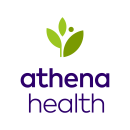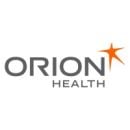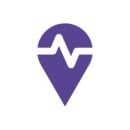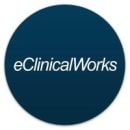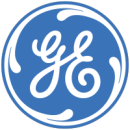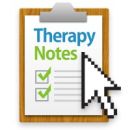In a healthcare environment strained by financial pressures, administrative burdens and physician burnout, medical software companies are developing increasingly sophisticated technologies to streamline operations, optimize finances and improve the quality of care.
Medical Software Companies
- Epic Systems
- Oracle Health
- athenahealth
- GE HealthCare
- McKesson Corporation
- Veradigm
- eClinicalWorks
- Greenway Health
- NextGen Healthcare
- Teladoc
In addition to accessing and maintaining patients’ electronic health records, medical software allows healthcare providers to manage clinical operations, monitor patients and provide data to help physicians make better, more informed decisions around diagnoses, treatment and care management. In some cases, medical software is even fueling research for new drug therapies.
In this article, we’ll introduce you to the industry heavyweights and promising startups defining healthcare’s digital transformation.
Top Medical Software Companies
Epic is the largest electronic health records company, with a market share of 42 percent as of 2025. Founded in 1979, the Verona, Wisconsin-based company provides electronic medical records to top medical institutions like Cedars-Sinai Medical Center, Cleveland Clinic, Johns Hopkins Medicine and Mayo Clinic. More than 190 million patients use Epic’s MyChart patient portal, which allows users to access test results, schedule appointments, pay medical bills and message their doctors.
Oracle acquired Cerner, a Kansas City-based electronic health records company, for roughly $28 billion in 2021. Now known as Oracle Health, it’s the second-largest electronics health records company, with a market share of nearly 23 percent as of 2025. Oracle Health also offers software tools to help providers manage clinical operations, revenue cycle management and data analytics.
athenahealth is the developer of an all-in-one platform that combines tools for electronic health records, medical billing and patient engagement. Founded in 1997, the Boston-based company was acquired by private equity firm Veritas Capital for $5.7 billion in 2019. Then, in 2022, private equity firms Bain Capital and Hellman & Friedman purchased the company for $17 billion.
Founded in 2015, Tempus AI is a Chicago-based company that analyzes data from electronic health records, imaging technologies and genomic sequencing to accelerate the discovery of biopharmaceuticals, predict the efficacy of treatments and diagnose diseases earlier. Roughly 65 percent of academic medical centers in the United States are connected to Tempus, and 19 of the top 20 oncology pharmaceutical companies partner with the company.
Orion Health is a New Zealand-based company founded in 1993. Its medical record system, Amadeus, integrates patient data from disparate systems into a single record. And its patient portal, Virtuouso, aims to simplify patients’ navigation of healthcare systems. Amadeus is used by several health information exchanges, which are networks of regional healthcare providers that share patient health information.
CorroHealth, a Plano, Texas-based company founded in 2020, specializes in optimizing providers’ financial performance through AI. Its software portfolio includes Pulse, an AI-powered automation tool for medical coding; Revive, which assists providers resolve outstanding bills; and Vision, which helps providers improve clinical documentation to receive a fair reimbursement.
Philips, a Dutch conglomerate founded in 1891, has shifted away from lighting and electronics in recent years and is now focused on healthcare technology. It has developed a comprehensive suite of software solutions for patient monitoring, clinical analytics, inpatient telehealth visits and informatics tools to analyze data from its imaging equipment and medical devices.
Sprinter Health works to close the gap between virtual and in-person care, bringing trained clinicians directly to patients’ homes, especially in underserved and rural areas. Headquartered in Menlo Park, California, the company has a global team supporting its mission.
Optum, a subsidiary of UnitedHealth Group, offers several software solutions for medical providers. Many of its solutions are based around medical costs and clinical decision-making, like its solutions for revenue cycle analytics and its suite of clinical decision support solutions. Its Enterprise Intelligence Suite is designed to help healthcare organizations understand the cost of care at multiple levels. In 2021, Optum acquired Change Healthcare, a medical software company that inherited most of McKesson’s software solutions through a 2017 partnership.
Altera Digital Health was established in 2022 after Harris, a subsidiary of Constellation Software, purchased Allscript’s portfolio of electronic health records platforms designed for hospitals and large physician practices. Harris then folded those products into Altera Digital Health. Altera’s portfolio includes electronic health records products like Sunrise, Paragon and TouchWorks, as well as dbMotion, which integrates patient records from disparate systems.
Founded in 1999, eClinicalWorks develops software for electronic health records, practice management and billing, as well as population health tools for managing patient care, assessing health risks and remote monitoring. The company’s software is used by more than 180,000 physicians, 850,000 healthcare professionals and 110,000 healthcare facilities around the world.
GE HealthCare, which spun off from GE in 2023, is best known for medical imaging equipment and other medical devices, but it also offers software tools. Its Edison Digital Health Platform is an AI-powered data aggregator that connects devices, apps and data sources. Its Command Center platform is a suite of apps used to orchestrate patient care, like matching patients with a hospital bed, readying a patient for discharge or preventing staffing shortages.
McKesson is a major distributor of pharmaceutical drugs and healthcare products, but it also develops software tools like CoverMyMeds, a software tool that facilitates prior authorization for patient medications. Some of its other products include Ontada, which aggregates data from oncology clinics; EnterpriseRX, which helps pharmacies manage operations; SupplyLogix, which assists pharmacies with inventory management; and Macro Helix, which aids health systems and pharmacies in utilizing the 340B Drug Pricing Program.
Meditech, a Canton, Massachusetts-based company founded in 1969, is the developer of Expanse, a medical records software designed for interoperability. The cloud platform features tools for medical billing, patient interactions, and population health tools to care for at-risk patients. It also features AI tools, like transcribing conversations into clinical notes and using predictive analytics to proactively identify health issues.
Founded in Corona del Mar California in 2021, Tebra offers a comprehensive electronic health records platform that integrates solutions for billing and marketing. Providers can streamline their operations with AI-assisted note-taking, automated administration and integrated features for ordering lab work, managing prescriptions and hosting telehealth visits. Its patient portal, meanwhile, allows patients to schedule appointments and message their provider.
Founded in 2002, Teladoc Health was a pioneer in the telehealth market. The platform connects users with U.S. board-certified primary care physicians, urgent care providers and mental health specialists who can diagnose diseases, prescribe medication and manage chronic conditions, like obesity, diabetes and hypertension. More than 600 U.S. hospitals use Teladoc’s software to facilitate virtual visits between physicians and patients.
PatientPoint builds software to directly support healthcare providers in delivering care. Its platforms are designed to alleviate administrative burdens and improve clinical workflows by delivering relevant messages to patients at the right time. The company uses machine learning to improve targeting in its digital engagement campaigns.
Siemens Healthineers is a healthcare technology company that spun off from German conglomerate Siemens in 2018. In addition to medical devices, Healthineers aids radiologists in interpreting imaging data with its AI-powered syngo.via solution, and it compiles imaging data with its unified Syngo Carbon platform. The company also offers point-of-care informatics to compile data from multiple devices, as well as tools to help lab professionals manage data, operations and lab inventory.
NextGen Healthcare provides electronic health records and patient management solutions for more than 40 specialty practices. Used by more than 100,000 providers, its software also features virtual visits, billing services, a patient portal and an AI solution that captures patient conversations for clinical documentation. The company, which was founded in 1974, was acquired by private equity firm Thoma Bravo for $1.8 billion in 2023.
Greenway Health offers electronic health records, patient management capabilities and revenue cycle management solutions for ambulatory healthcare practices. Its software, which is used by more than 55,000 providers, uses artificial intelligence to assist providers in documenting patient interactions. It also offers a patient portal, telehealth capabilities and analytics. Founded in 1977 as Medical Manager, the Tampa, Florida-based company has been known as Greenway Health since 2013.
Allscripts, an electronic health records company founded in 1986, rebranded in 2023 to Veradigm, which was also the name of the data analytics business segment it launched five years earlier. Veradigm offers multiple software solutions for biopharma companies, health plans and healthcare providers. It feeds data from its electronic health records platforms into an AI-powered research tool for biopharma companies. One of Veradigm’s electronic health records platforms is Practice Fusion, which it acquired for $100 million in 2018.
Launched in 2010, TherapyNotes is a practice management system for mental health providers. It integrates electronic health records with capabilities for telehealth, scheduling, messaging and billing. The platform features AI-assisted note-taking, a structured template for clinical notes and a to-do list that reminds providers of action items that need to be addressed.




